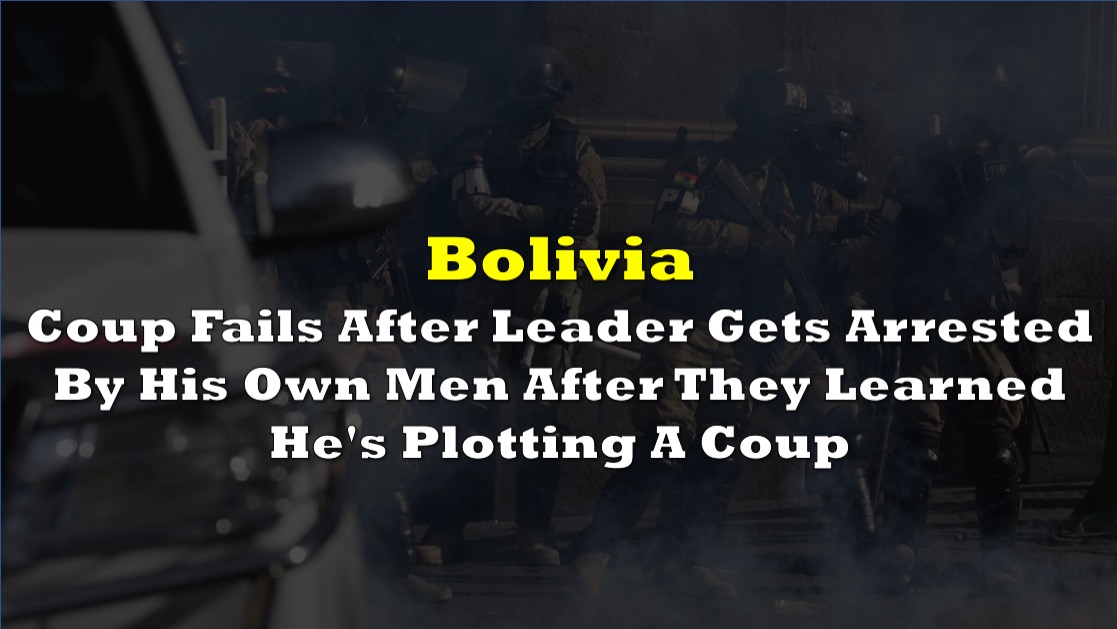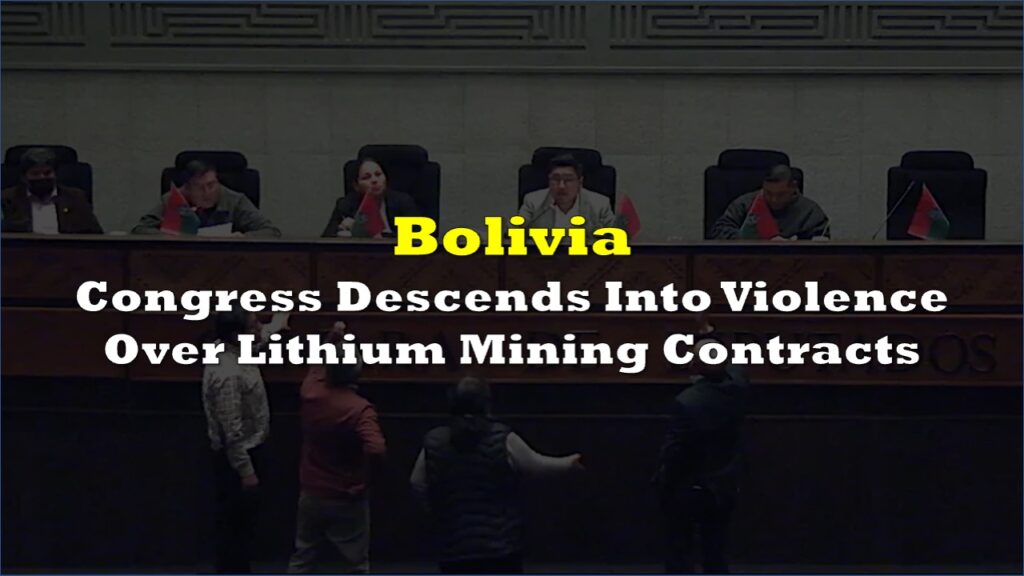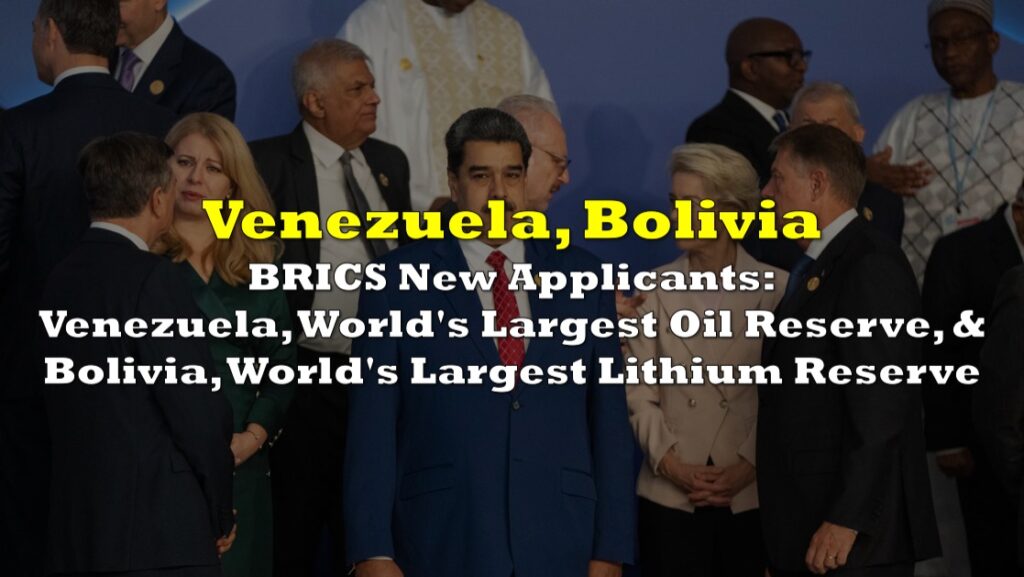An apparent coup attempt in Bolivia was quashed on Wednesday as armored vehicles rammed the doors of the government palace in La Paz, only for President Luis Arce to stand firm and swiftly appoint a new army commander who ordered troops to stand down. The incident has sent shockwaves through a country accustomed to political turbulence, reigniting concerns about democracy and stability in the region.
The tumultuous day began when General Juan José Zúñiga, who had been dismissed from his position as army chief just a day earlier, led a contingent of soldiers and armored vehicles into Plaza Murillo, the heart of Bolivia’s government quarter. In a bold move, the vehicles rammed the doors of the government palace, seemingly intent on forcing a change in leadership.
BREAKING: Armoured vehicle rams into Bolivia presidential palace doors allowing troops to enter pic.twitter.com/kfGRBFrlYF
— Anshuman Singh (@indiancrusher) June 26, 2024
Arce, however, was quick to respond. Addressing the nation from within the palace, he called on the Bolivian people to “organize and mobilize” in defense of democracy.
“We cannot allow coup attempts to take Bolivian lives once again. We want to urge everyone to defend democracy,” Arce declared from the presidential residence, Casa Grande.
In a dramatic confrontation captured on Bolivian television, Arce confronted Zúñiga in the palace hallway, ordering him to withdraw his soldiers. “I am your captain, and I order you to withdraw your soldiers, and I will not allow this insubordination,” Arce said. Shortly thereafter, Zúñiga was arrested, though the exact charges against him remain unclear.
The President of Bolivia, Luis Arce has just stated during a Press Conference that the Leader of the Coup d'état in the Capital of La Paz, General Juan José Zúñiga has been Arrested by his own Troops after they realized he was conducting a Coup against the Government; with all… pic.twitter.com/1Z850U8uCK
— OSINTdefender (@sentdefender) June 26, 2024
General Zuñiga has left Plaza Murillo in his armoured vehicle, it appears the military is withdrawing.#Bolivia pic.twitter.com/9wan12usBw
— CNW (@ConflictsW) June 26, 2024
In a twist, Zúñiga claimed before his arrest that the coup attempt had been orchestrated at Arce’s behest as a political maneuver. According to Zúñiga, Arce had told him, “The situation is very screwed up, very critical. It is necessary to prepare something to raise my popularity.” These allegations have yet to be addressed by Arce or the Ministry of the Presidency.
WATCH: Bolivian general gets arrested on live TV after failed coup attempt pic.twitter.com/lMb4mgWiOU
— BNO News (@BNONews) June 26, 2024
The failed coup attempt comes amid rising tensions and economic hardship in Bolivia. The nation has been grappling with a sharp economic decline, transitioning from one of South America’s fastest-growing economies to one of its most crisis-stricken. Additionally, a high-profile rift has emerged within the ruling Movement for Socialism (MAS) party, as Arce and former President Evo Morales, once close allies, now vie for control ahead of the 2025 elections.
Despite the turmoil, the attempted coup lacked substantial support. Even Arce’s political rivals condemned the action and rallied to defend democratic order. Former President Jeanine Añez, currently imprisoned for her role in the 2019 political crisis, denounced the coup attempt, stating, “I fully reject the mobilization of the military in the Plaza Murillo attempting to destroy constitutional order.”
International and regional leaders swiftly condemned the coup attempt. The governments of Spain, Argentina, Chile, Colombia, Honduras, Paraguay, Venezuela, and Uruguay all denounced the military coup, calling for the Bolivian people to democratically resist the army and for the “traitorous units” to return to their barracks.
The Governments of Spain, Argentina, Chile, Colombia, Honduras, Paraguay, Venezuela, and Uruguay have all Denounced the ongoing Military Coup in Bolivia, with them calling for the Bolivian People to Democratically Resist the Army and for the “Traitorous Units” to Return to their…
— OSINTdefender (@sentdefender) June 26, 2024
Chilean President Gabriel Boric expressed solidarity with Arce, stating, “We express our support for democracy in our brother country and to the legitimate government of Luis Arce.” The Organization of American States (OAS) also condemned the coup in the “most energetic way,” emphasizing the military’s duty to respect civilian authority.
As the crisis subsided, newly appointed army chief José Wilson Sánchez ordered troops to return to their units, and the armored vehicles departed from Plaza Murillo. The Attorney General’s Office announced a criminal investigation into Zúñiga and others involved in the coup attempt.
Bolivians, wary of further instability, began stocking up on food and essentials, anticipating potential unrest. Vice President David Choquehuanca reassured the public, vowing, “Never again will the Bolivian people permit coup attempts.”
The failed coup underscores the volatile political landscape in Bolivia and highlights the deep divisions within the MAS party. As the country approaches the 2025 elections, the rift between Arce and Morales is likely to intensify, posing significant challenges for Bolivia’s democratic institutions and its path to stability.
Information for this story was found via AP News, Reuters, CNN, and the sources mentioned. The author has no securities or affiliations related to the organizations discussed. Not a recommendation to buy or sell. Always do additional research and consult a professional before purchasing a security. The author holds no licenses.






